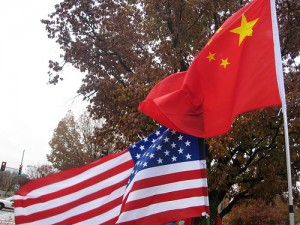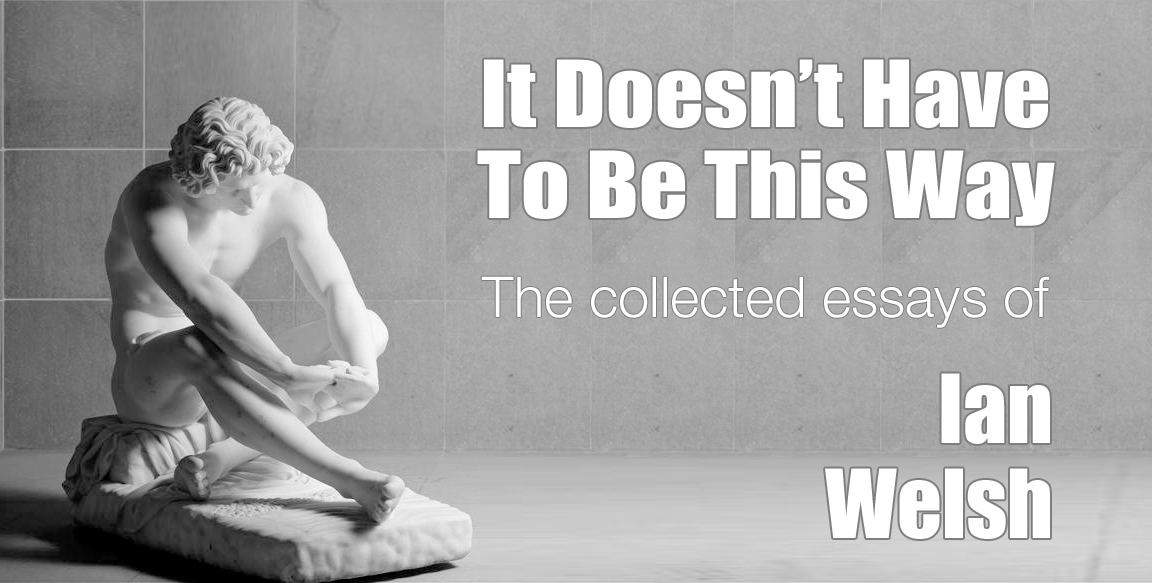All major communications advances have had both liberating and authoritarian uses. And, I believe, every one has been stronger on the authoritarian side than on the liberating side.
(Originally published Jan 3, 2018. Back to the top, because this needs to be re-emphasized.)
Writing improved access to knowledge, but it was primarily used by nobles and temples to track slaves, debt, and workers wages (in grain). It enabled centralized states and a vast web of debt-slavery (with interest rates in Mesopotamia often at 30 percent or so.) Without writing, centralized states always amounted to feudal states; with writing, central administration, and bureaucracy were possible.
Taxes could be tracked, property assigned, and citizens could, in effect, have files (and very often did).
The telegram, which triggered the real beginning of the modern telecom revolution, centralized control in capitals. Viceroys and governors lost power, rebellions were more easily crushed (because news could travel fast) and companies could be run from HQ far better.
Each continued step in the electronic telecom revolution has continued the centralization, and the invention of recording devices and video cameras made possible a type of surveillance not possible before.
The problem with prior surveillance states was that they required a lot of people. They were inefficient. Paying everyone to watch everyone else has sharp limits. It also doesn’t record everything: What you were doing 14 years ago at 2:17pm in the afternoon is not usually available to be used against you now, when circumstances have changed, and something “on you” is needed.
Modern computer networks, which allow files to be easily shared, mean that your life is available to anyone with access, which increasingly, due to all the leaks, means anyone who really wants to know.
These records already control a vast amount of your life: Your credit score is used not just to determine how much money you can borrow, but often by landlords to see if they will rent to you, and by companies to decide if they will hire you. A criminal record makes almost all good jobs unavailable, and you can’t just “leave town” to avoid that.
China is putting together a central scoring system which will give every single citizen a number. Spend a lot of time playing computer games? Lower score. Have friends who say bad things about the government online? Worse score. And so on.
Meanwhile, the combination of security cameras everywhere and biometric recognition systems based on face, gait, and even infrared profile, means that combined with AI, where you are all the time can be tracked and stored. Cameras increasingly have audio attached.
And heck, most people in the first world now voluntarily carry a phone with them which acts both as a tracking device and a bug (turning the microphone on to listen to you is trivial).
Online, everything you do is tracked: where you go, what you buy, who your friends are, what sort of words you say, what your political opinions are, and so on. This information, while it still misfires often, can generally tell if you’re sick, what you’re sick with, what you want to buy, how your finances are doing, if you’re pregnant or have a young child, and far more besides. It will only get more all-encompassing as AI and algos improve, and as more information is hooked into the web.
It takes quite a bit of work now to go dark, and a great deal of work to leave your past behind. Even faking your death is harder than it used to be.
Further, computer networks make centralized control far, far easier. Even telephones in the age of expensive, long distance calls were not as good as what we have now. You can run Shanghai from Beijing or New York: or New York or San Francisco from Shanghai.
There has been a liberatory effect, best understood by those of us old enough to remember before the internet was widely available: It amounts to “information at our fingertips,” and it is far more a good than a bad. No longer, if we don’t know and don’t have a book at our fingertips, do we have to find an expert or run to a library for most inquires. If we want to learn about many things, including advanced topics like engineering or law, we need only an internet connection.
This is a real increase in freedom from experts.
But this is outweighed by the horrors of close supervision, as in Amazon warehouses, where workers are tracked not even minute by minute, but in seconds per task, by remote electronic supervision.
This is hell. This is the sort of supervision that could be used only rarely, at great cost, in the old world, because the supervisor had to be right there, with you.
Meanwhile, drones assassinate people in every continent but Australia (I think) and Antarctica, from central control in America. This easy assassination is something no one could do 30 years ago.
This is technology with hellishly authoritarian potential, and history tells us it will be used that way. The printing press may have broken much of the power of the Catholic Church, but it also led to states we still call absolutist.
The same will be true of these telecom technologies, especially combined with AI behavioural pattern recognition.
The bet, on the part of elites, is that this tech breaks the inefficiency problem of classical authoritarian surveillance states: Only a few people, comparatively, are needed. It will require a few percent of the population at most, not the previously necessary twenty to thirty percent for true comprehensive surveillance (with all the possibilities of petty corruption that then ensue: The USSR’s surveillance was extensive and, eventually, worthless.)
There is a widespread myth in our society that Progress is always Good.
It is not. Sometimes it is good, sometimes it isn’t. Generally, it is mixed, with bad dominating.
Right now, in much of the world, the good of the telecom revolution seems poised to be swamped by the bad (and this is without even discussing the data coming in showing that the more time you spend on your phone/computer, the unhappier you are. This data is not mixed, it is virtually all bad.)
Technology which can be used by elites to make other humans inferior, will be. It always has been, and it always will be, and the only way that is challenged is by commoners rising up, often violently, to insist otherwise.
The results of the work I do, like this article, are free, but food isn’t, so if you value my work, please DONATE or SUBSCRIBE.




